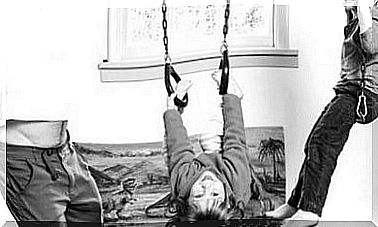Unwritten Rule: Don’t Make Friends With Other Crazy Women
Crazy women are forbidden to make friends with other crazy women, but no one understands us better. We all have wounds, who decides what are disorders?

The unwritten rule of the centers where group therapy is carried out for the recovery of so-called “mental disorders” is not to make friends with your therapy partners.
And it is not difficult because, against all prognoses, in group therapy very intimate experiences are not shared or that can “excessively affect” the partners (and I say “partners” and not “partners” because, on the other hand, at least when we talk about the so-called borderline personality disorder, group therapies are mainly composed of women and girls).
We “upset” cannot be friends
But, although it is not difficult not to make friends with your group therapy companions, do not go beyond the line drawn by the professional in charge and limit yourself to greeting them cordially and learn together with them to better manage your ways of feeling; I still find it cold and forced not being able to hear how the next weekend’s weekend really went, what happened to her to be like this, if she is better or worse and why . Not being able to meet for a coffee, a beer or whatever, and get to know each other more; since, after all, we are together in this.
And it is also that it seems that the unwritten rule does apply more strictly than I thought. Or, at least, that’s what an acquaintance told me; that, when she was interned in a recovery center for eating disorders, they passed a sheet where the different inmates wrote down their social networks to keep in touch and the professionals in charge seized her.
My own psychologist strongly emphasizes that if I am injured, I am not at my best to provide care for people with the same psychological injuries. Not even them to provide for me.
Injury or disorder, who decides?
But all this only leads me to wonder, are these professionals aware that we all have psychological wounds ? That the division between “traumatized and unstable people”, “mentally ill people”, “crazy” that I tell ourselves and “stable people”, “healthy people”, “sane people” is rather imaginary?
Some people externalize our pain and suffering in ways classified as “symptoms of mental disorder”, others have learned to manage it better or, sometimes, not even that: in a less visible way. But something hurts us all, and we all suffer, more or less periodically, more or less chronically.
An irreplaceable understanding
And yet, of all the people I have met, other “crazy” people, others classified as “mentally ill” have been at the bottom of the barrel when I was on the brink of a crisis, when suicidal impulses They besieged me, when I had a nervous breakdown, when I disconnected from reality and lost consciousness of where I was or who I was.
Because those who feel what I understand, know what I need to hear, know how to validate my pain and my feelings while helping me manage them in healthier ways for the future.
I am not saying that I cannot support myself and let myself take care of myself, take care of people who do not live with the imposed label of “mentally ill” or “crazy”. I have and I do.
I am saying that I do not agree with the generalized assumption that these people are not diagnosed, or that they do not take medication, or that they do not go to individual or group therapy; they do not suffer as well and need specific and periodic emotional care like my closest friends and me.
I’m saying that, when push comes to shove, a “don’t be cool, auntie” or a hug won’t make me come alive tomorrow. A dialogue based on understanding, or at least on the desire to understand myself, on knowledge of cause and (of course) on love and affection that overcome socially learned taboos and stigmas, yes.
For all this, as much as I know closely the “dangers” of forming relationships, especially friendship, with other people (in my case, especially other women) “unstable”, “traumatized” when they affect me the crises of my friend or of having to cry a relapse and even a suicide … as much as I am more than aware of everything that involves shaping and forging these relationships, I continue to choose them day after day.
Because the rule, written or unwritten, that we “crazy” cannot be friends, lovers, girlfriends one another violates my right to relate to those who understand me best and take care of me as well as part of the false assumption that there are people “totally out of the pot” and people “undeniably stable” in opposition.









